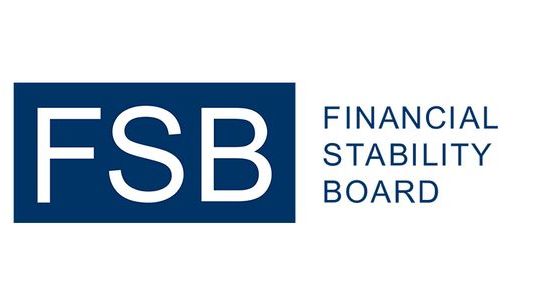AIMA Member Questions Answered
Published: 24 November 2023
You asked, the AIMA GIB answered!
Earlier this summer, AIMA members submitted anonymous questions to our Global Investor Board (GIB) to hear their perspectives. Here are the GIB’s responses:
Member Question1 on Compliance Expectations:
How do increasing compliance regulations and monitoring requirements affect investors’ expectations of fund managers? Do these expectations change as the fund manager’s assets under management increase? If so, how should fund managers scale their compliance resources (e.g. staff, data, service providers)?
GIB Response:
- In the operational due diligence (ODD) process, investors consider a manager’s resources and expertise in compliance, tax, legal, operations and more.
- Insufficient compliance resources do not necessarily preclude investment. Instead, investors, may engage with the fund manager(s) to enhance their processes to meet expectations.
- Although there is no specific benchmark (ie. number of compliance staff per number of investments or AUM, etc.) for what compliance resources are sufficient, as a manager grows in AUM, expectations do grow for them to have more resources in compliance, legal, operations and tax (people and technology solutions) to meet regulatory requirements across all relevant jurisdictions.
- Proper investment in compliance resources can mitigate risks to returns and reputation.
Member Question on Investing in Emerging Managers:
Do you invest in emerging managers? If so, are there specific objectives (e.g. DE&I) guiding these investments? If not, what could change this approach?
GIB Response:
- Some investors run seed programs, investing in emerging managers with specific policy objectives, like supporting minority or women-owned businesses.
- There is no set minimum for AUM or team size for investing in emerging managers.
- Investors often have active, engaged conversations with emerging managers to help them improve their operational sound practices through their due diligence process.
- Sometimes, emerging managers need more time to mature (i.e. further AUM growth, longer performance track- record, institutional quality of its operations or all of these before a larger investor can invest in them.
Member Question on ESG:
How will your expectations of alternative managers change with regards to ESG implementation? Whether a manager or fund focuses on ESG or not, it feels like ESG expectations are rising for all managers and funds. How will the recent ESG backlash in the US impact this?
GIB Response:
- The GIB discussed ESG recently, with their views summarized here:
- Many investors deem ESG considerations crucial for managing risks and returns. While screening and ESG interpretations can be subjective, there is much agreement that good governance and diversity of thought will improve ESG outcomes. No matter where investors fall on the ESG spectrum, most agree that climate risk is too big to ignore, even though data to support this is still developing.
- While there is some political pushback on ESG and questions as to whether ESG limits the investment universe, ESG integration should align with the asset manager’s objectives, values, and engagement.
- Productive discussions may occur by addressing environmental issues, diversity and governance, separately from the ESG label. More political education is needed around the purpose of ESG.
- Shareholder engagement with industry leaders is encouraged; rather than outright portfolio exclusion to better influence outcomes, especially on themes like energy and climate transition.
- Fund managers might consider having two funds (one with ESG and one without) for a given strategy to cater to jurisdictions or investors with diverse views. Where there is only one fund, managers should not have different marketing decks (i.e. one emphasizing the importance of ESG and one without).
- Linking ESG goals to fund manager performance KPIs and incentives is encouraged, with climate change impact and diversity metrics gaining investor attention.
Member Question on Fund Structure Preferences:
For US allocators, is there a preferred fund structure for hybrid/cross-over funds (for example., open ended fund with no redemption rights for a fixed term)?
GIB Response:
- The GIB discussed this topic recently, with their views summarized here:
- A fund’s liquidity should match the duration of the underlying assets. If a fund has evergreen liquidity and illiquid investments, provisions like pro-rata or gating mechanisms should be in place to protect all unit holders in case of excessive redemption activity.
Member Question on Secondary Markets:
What do you think about private market secondaries as this segment grows in popularity?
GIB Response:
- As a result of the denominator effect, the secondary market has heated up over the past year though it is more favorable to be a buyer than to be a seller, to take advantage of attractive deals.
- Continuation funds (where a sponsor sets up a new fund vehicle (the continuation fund) to purchase one or more assets from an existing fund, managed by the same sponsor) have also presented interesting investment opportunities.
- GPs are holding onto better funds longer. Interest from potential buyers also helps provide valuation marks for their private portfolios, even if they choose not to sell.
- While private credit secondaries are also slowly increasing in use, given the short duration of the asset, this space is less interesting than private equity secondary opportunities.
- It’s important for investors to evaluate opportunities carefully to avoid problem assets when engaging in the secondary market.
- More relevant GIB perspectives are here:
Member Question on Assessing a Firm’s Marketing and Digital Channels:
Which digital marketing channels do you look at when assessing a firm?
GIB Response:
- Focus is primarily on the fund manager’s website and any marketing materials, though investors will also review any social media that the firm has published as part of any background check that they conduct.
Bonus GIB perspectives on Manager Reviews:
- Recent areas of focus in manager reviews include political donations, conflict of interest checks, and dual signature controls. Consulting with outsourced ODD and manager research firms also provides investors with valuable, objective perspectives and further comparisons across industry.
Ask the GIB:
For more inquiries or to share your questions and ideas with the GIB, please submit them anonymously here or email [email protected].
To learn more about the GIB and their perspectives, please contact Claire Van Wyk-Allan, Managing Director & Head of Canada.









